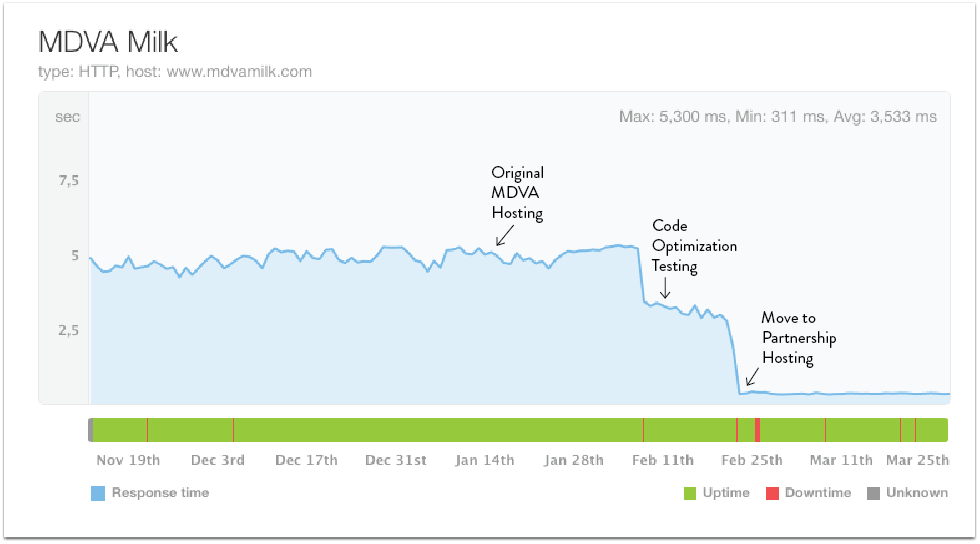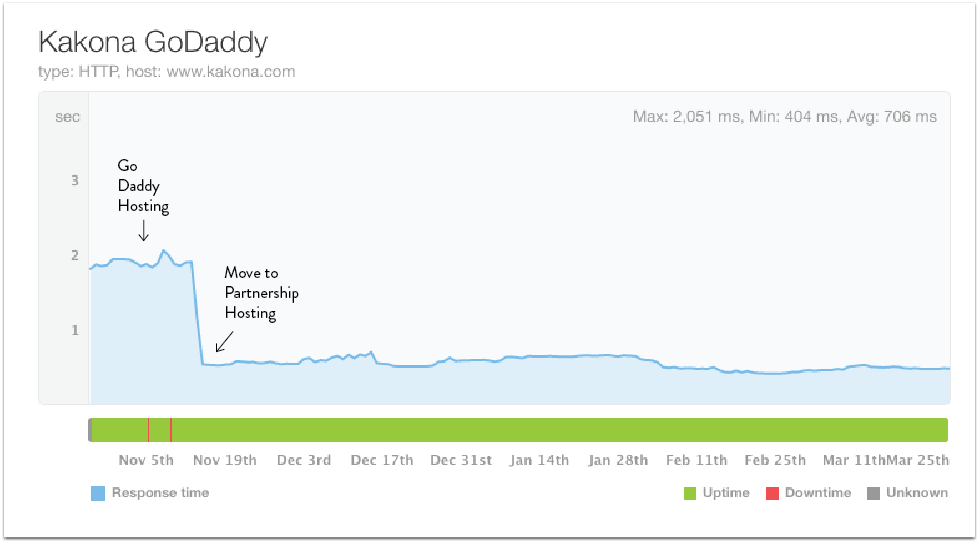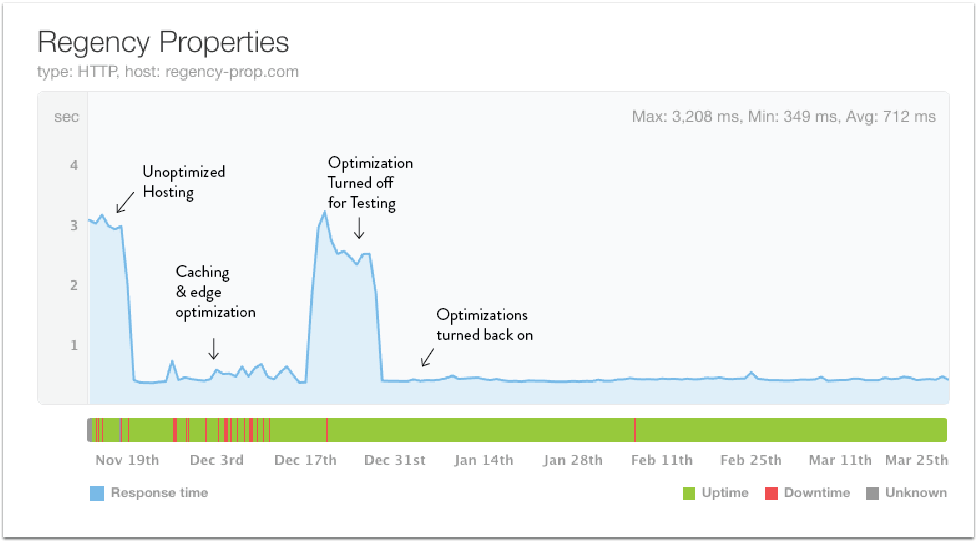“How Can I Make My Website Faster?” This is one of the most common requests we receive, and the good news is we have made improvements for every site we have serviced.
Why Website Speed and Page Load Times Matter
Site visitors want to start reading and experiencing web pages as fast as possible. According to a 2018 Google study, 53% of mobile users leave a site that takes longer than three seconds to load. The numbers are even more impactful when you put those numbers in monetary terms. According to Akamai, in an e-commerce site making $100,000 per day, a 1-second page delay could potentially cost you $2.5 million in lost sales every year. It is paramount that your website loads quickly.
A Lasting First Impression
In addition to people leaving your site or not completing a task or conversion, a slow website reflects poorly on your company. Many times, a potential customer will never see your office or store or meet any of the team, but they will experience your website. Bad first impressions are developed around this poor experience. Read on for a few of our recent web hosting case studies:
Case Study 1
Maryland & Virginia Milk Producers Cooperative Association (MDVA) is a dairy farmer member co-op with a membership of over 1,500 farm families. The site promotes its brand and service and also doubles as a member portal web application. an associated external database and consumer-facing instance, we consulted MDVA to move their site to our reliable, managed hosting environment. The results since the changeover at the end of February are clear.
After working to update and improve the site, we turned our attention to the speed of the website. Since it was no small undertaking to move everything, we explored all the possibilities.
We made a few changes with images and caching plugins, the real results occurred when we moved from MDVA then the current hosting company to our web hosting platform.
Page load time dropped from 0:05 to 0:01 seconds. High fives all around! You may notice the downtime before and after the move – this was due to https certificate changes and scheduled downtime for web app maintenance.

Case Study 2
Kakona – Bahamas Luxury Community is a unique, luxury island resort located in the Bahamas National Park targeted at the very high-end clientele. As the properties are developed, the Kakona web portal provides homeowners architect, designer, and contractor updates, photos, live streams of construction, and overall project status.
While the traffic is not overwhelming, it is imperative that each and every web session be as quick and efficient as possible. The web experience needs to meet the needs of those targeting multi-million dollar real estate investment. The Kakona website was hosted with GoDaddy. While GoDaddy is a reliable resource for domain registration, their reputation for hosting fast, reliable websites is not great.
Around the end of November, we moved Kakona.com from GoDaddy Hosting to our web hosting. The results are significant. Page load times went from taking 0:02 to about 0:0075 seconds.
In addition to the increasing speeds and decreasing page load times, the server has excellent uptime, consistent speeds, creating an extremely reliable user experience.

Case Study 3
Regency Properties manages nearly 7 million square feet of commercial properties across 19 states. The Regency website provides a property portal, tenant information, as well as company news and notes. The Regency Properties website receives a large continuous amount of traffic as well serves thousands of pages of content and real estate information.
Due to existing technical requirements, Regency Properties had to remain with their existing host. With this condition in place, we set out testing and optimizing caching systems and plugins, CSS and Javascript combination and reduction.
After our testing and optimizing we reduced the page load times from 3 seconds to 0.6 seconds all while keeping the hosting on the same platform.
Due to company and website updates, we needed to keep the website speed improvements disabled for part of December. You can see how the page load times dramatically increased with the enhancements turned off and then the performance returns when the enhancements are enabled.

Additional Reasons for Needing Fast Loading Pages
Improved User Experience (UX)
As mentioned, page load time is a vital component of UX. Long page load times often result in visitors bouncing to a different site or abandoning their search completely. Because there is no shortage of sites with great UX, it’s crucial to get yours right.
Better Search Visibility
Because hosting affects the speed at which your site loads – and search engines take load times into account – hosting is a critical factor for your rankings. Reliable hosting also maximizes site uptime, another important SEO ranking element.
Increased Conversion
The importance of site speed cannot be overstated when it comes to e-commerce. According to Kissmetrics, 47% of consumers expect a web page to load in 2 seconds or less. More importantly, 40% abandon a website that takes more than 3 seconds to load. That 1-second delay in page response can result in a 7% reduction in conversions.
Next Steps
We will continue to keep up with the latest code enhancements, security fixes and trends in the industry.
If you are thinking your website could be faster, it most likely can be. We are happy to evaluate page speed and website load times, the health of your website and its hosting environment. An initial audit can provide enough insights to spot and diagnose any key issues. Quite often, a few basic configuration changes can yield significant results – and ultimately make your website and business more profitable.
Contact us today to schedule a site audit!


